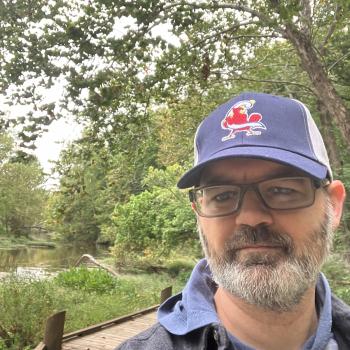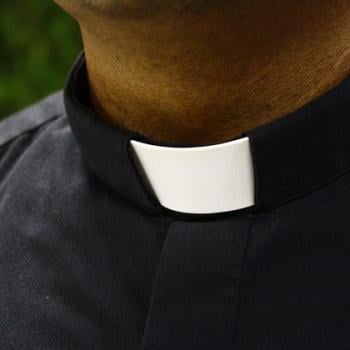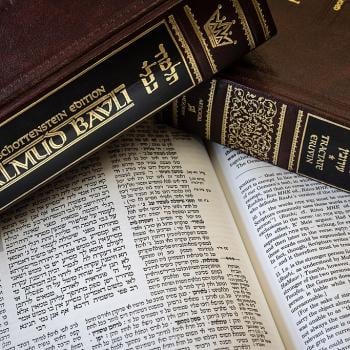Cognitive dissonance gradually gave way to tangible forms of leaving, and leaving turned, at times, into exile. Beck discovered that the warmth of her neighbors and the people in her ward dissolved when she and her husband officially resigned from the Latter-day Saints church. Friends and family alike shunned her. Sweeney's childhood friends had little to say to him, and his actions led to difficult, although still loving, questions from his family. Castro was completely cut off from her mother's life, and the reader questions whether reconciliation is possible amidst so much pain. The cost of leaving is high for all except perhaps Rosen, for whom fundamentalism was never deeply integrated into family life.
The consequences of leaving provoke some of the most thoughtful passages in the books. Sweeney writes that if he were to repent of his waywardness and return to the fundamentalist fold, he knows he would be welcomed with open arms. He poignantly writes, "I would be received like a convert from Judaism or Islam to Christianity, one who saw the errors of his ways. I could probably become a star on the prophecy preaching tours. My testimony would inspire all who listened. I can imagine exactly how that would feel, and I like that feeling."
Beck knows that the price she has paid for telling her truth about her life is very high. She lives in almost complete exile from her family and home. "I am the one," she acknowledges, "who broke the family code." But giving up the certainties of her Mormon upbringing has offered her another certainty on which she now builds her life. "Once you are sure that God is waiting in the acceptance of every true thing, even pain, I'm not sure despair is even possible."
Castro reaches out through the pain of her childhood to try to understand what drew her parents to the Jehovah's Witnesses and why her mother remains in the faith.
Both my parents mistrusted and abstained from politics, joining instead -- my father briefly, my mother for life -- a religion that recognized all people as equals, that had seen the world that way even in the 1920s and ‘30s, when most of America hadn't: the kitschy well-meaning illustrations on the endpapers of the Watch-tower books from the Jazz Age and the Depression: a Mexican family all in sombreros, an African family in embroidered A-line robes, a clean-cut white family, a Chinese family in their conical straw hats, all the families standing together, their faces raised toward heaven, where a pale, bearded Jesus rides down on a horse.
She sees in the Jehovah's Witnesses an attempt to embrace American diversity. This is her most generous gesture toward the religion she perceives as having caused her so much pain.
Sweeney and Beck both have daughters who are being raised without the fundamentalism that rooted them as children. Both express anxiety and joy over their children's hostility to "fundamentalism of any stripe." Sweeney's daughter now follows in the Protestant and fundamentalist tradition of protest by protesting nearly all things religious, from confession of sin to the Eucharist. Sweeney, more than any of the others, wonders if he can anchor his children without the faith that so moored him.
Each of these memoirs of fundamentalism has something to recommend it. The weakest of the four is Rosen's My Fundamentalist Education. Though readers who are familiar with fundamentalist culture of the 1970s and ‘80s will appreciate her descriptions of the impact that evangelist Joni Eareckson and traveling missionaries had on her as a small girl, and of her growing passion for the Bible and of her puzzlement over the relationship between creation and evolution, her story rarely penetrates the surface of that culture. Sweeney traces the same ground as Rosen, having grown up at nearly exactly the same historical moment, but he confronts the realities of a fundamentalist background with more depth and gives us a careful examination of his own soul. At moments Sweeney seems to be trying too hard to be gentle with his heritage, but he offers a memorable look at the way fundamentalism -- for good and for ill -- shapes a life long after its tenets have been left behind.
Comparing the stories of Sweeney and Rosen to those of Castro and Beck is a little like comparing the faiths out of which they came. There are certainly similarities, but the stark differences compel greater attention. Castro's and Beck's memoirs are extraordinarily well written, and both are page-turners. I read The Truth Book almost in one sitting, waiting desperately for Castro's decision to run away from her abusive family. Though her bitterness perhaps prevents her from providing the reader with balanced insight into the Jehovah's Witnesses, the story maintains its grip on the reader with each heart-crushing turn.
Beck is a master of the memoir. Like her first book, Expecting Adam, Leaving the Saints requires the reader to suspend attention to the outside world and enter completely into the author's reality. She compels belief in the unbelievable, and she knows that thousands of people have reason to deny her version of the truth -- about the abuse that she claims is part of her experience and the ugliness revealed by the light she shines on her Mormon upbringing. At the same time, she is eager to praise what she can praise in Mormonism and not to leave the reader with a sense of bitterness. Her subtitle is How I Lost the Mormons and Found My Faith, and faith is what she wants readers to find for themselves.




